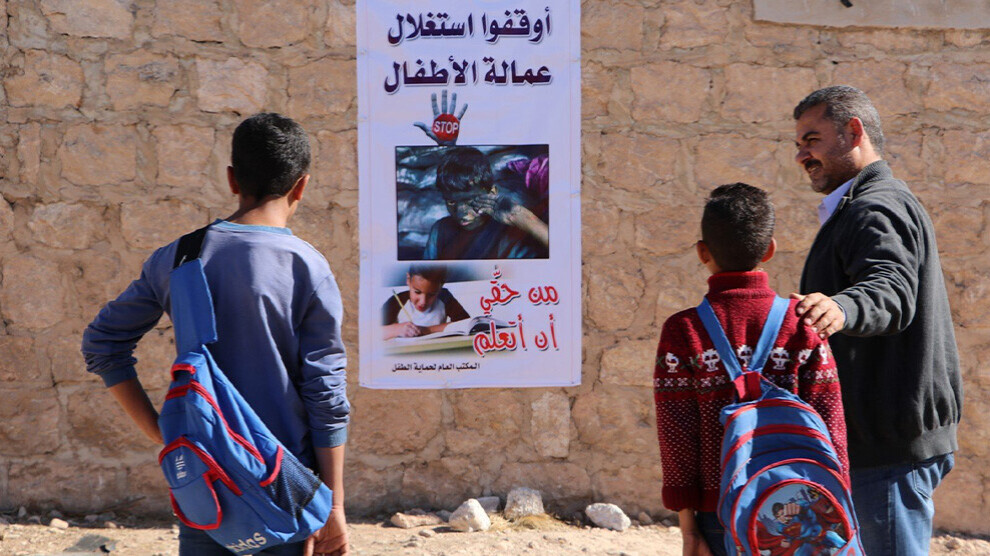Campaign against child labor in northern and eastern Syria
The Child Protection Office of the Autonomous Administration of North and East Syria has launched a campaign against child labor.
The Child Protection Office of the Autonomous Administration of North and East Syria has launched a campaign against child labor.

The Child Protection Office of the Autonomous Administration of North and East Syria, together with the Committee for Social Welfare, has launched a campaign against child labor. The campaign, "Child Protection is Our Duty," advocates for children to grow up in freedom, safety and with education, and for the abolition of child labor. "Child labor deprives children of their childhood and violates children's rights worldwide," said Khaled Jaber, co-chair of the Child Protection Office for Hesekê. "Through this campaign, we aim to raise society's awareness of children's rights. To overcome the blatant violation of the most basic human rights, we need to create great attention and public awareness of this issue. Especially among responsible actors in politics, business and society."
According to current estimates by the International Labor Organization (ILO) and the United Nations Children's Fund (UNICEF), there are 160 million children who work. This means that one in ten children worldwide is affected by child labor. There are no reliable figures on how many children have to work in the northeastern Syrian autonomous region. But wars and armed conflicts are a major factor in the vicious circle of child labor.

The campaign against child labor in northern and eastern Syria was launched in Hesekê and in numerous cities and towns in Shehba Canton, including Fafîn, Ehdas, Ehres and Tel Rifat. Wide-scale flyer and poster campaigns are currently underway to raise awareness, especially in industrial and commercial areas as well as in city centers. Posters displayed in the city area include demands such as "No to the exploitation of children! Let's take care of their education, because they are our future. Stop child labor!"
Personal talks
In addition, personal talks are held in factories to also raise awareness of the dangers of child labor. "Heavy physical and dangerous work does not leave children unscathed," said Rustam Youssef of the Committee for Social Welfare. “It has far-reaching consequences, not only physical, but also and psychological. There is no time at all for being a child. We must overcome this situation, which is unfair to children, as soon as possible."

Next step: seminars, rallies, demos
As a next step, informational events, rallies and other public actions are planned to combat child labor. According to the social contract of northern and eastern Syria, child labor is generally prohibited in the autonomous region. And yet it still exists in many areas. The Child Protection Office wants to change that.